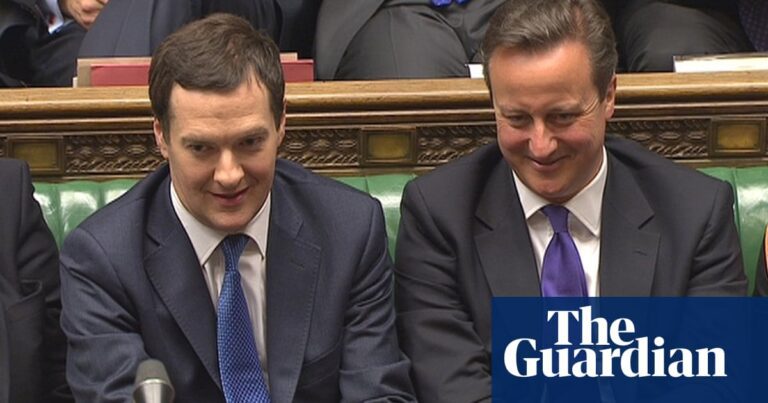When newcomer David Cameron appealed to the nation in 2010, he promised to fix a “broken Britain”.
In the first of a two-part series, Jonathan Freedland and Helen Pidd discuss how Cameron introduced the concept of the 'Big Society', arguing that it is communities, not governments, that make the country better. The Prime Minister promised a kinder, more gentle Conservative party that gives real power to charities and community groups to change the UK for the better.
Yet almost immediately after becoming prime minister, Cameron made a historic reversal: instead of ushering in a new, compassionate Conservative era, he and Chancellor of the Exchequer George Osborne launched a programme of dismantling the state and social structures, ostensibly to reduce the national debt.
Austerity has affected every aspect of society, with local authorities losing 60p for every pound of funding they receive from central government. Pools funding has dried up, youth clubs have been closed, police forces have been cut and half of magistrates' courts have been closed.
We return to the UK's biggest food bank and discuss how Cameron and Osborne's austerity policies continue to destroy people's lives, years after they left Downing Street. There are now 3,000 food banks operating in the UK, but are they a big part of society's work, or the most visible symbol of the cruel legacy of Conservative rule?
Photo: Reuters
Support the Guardian
The Guardian is editorially independent. We want our journalism to be open and accessible to all – but increasingly we need readers like you to fund our work.
Support the Guardian


